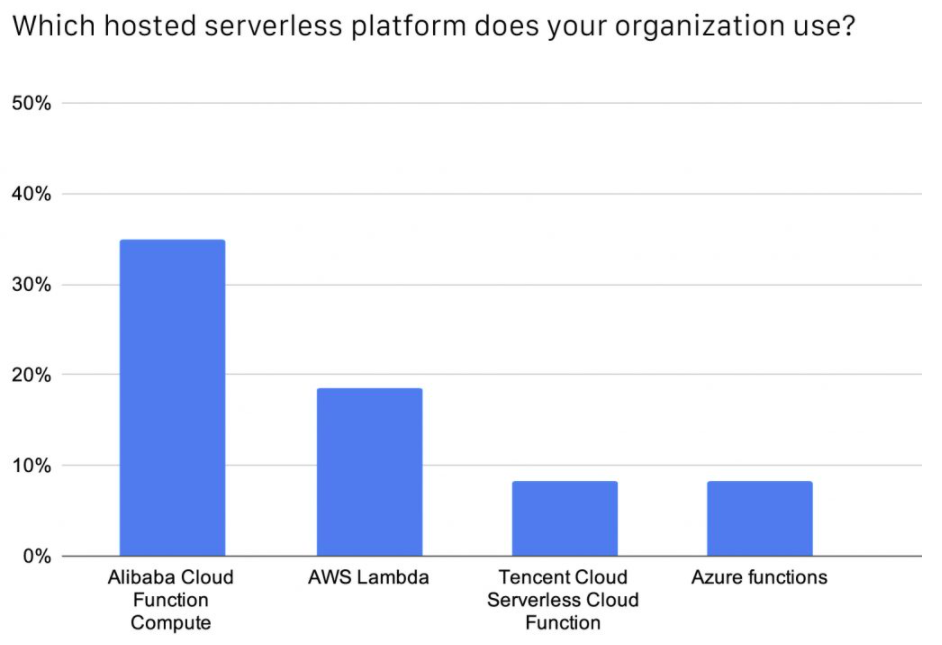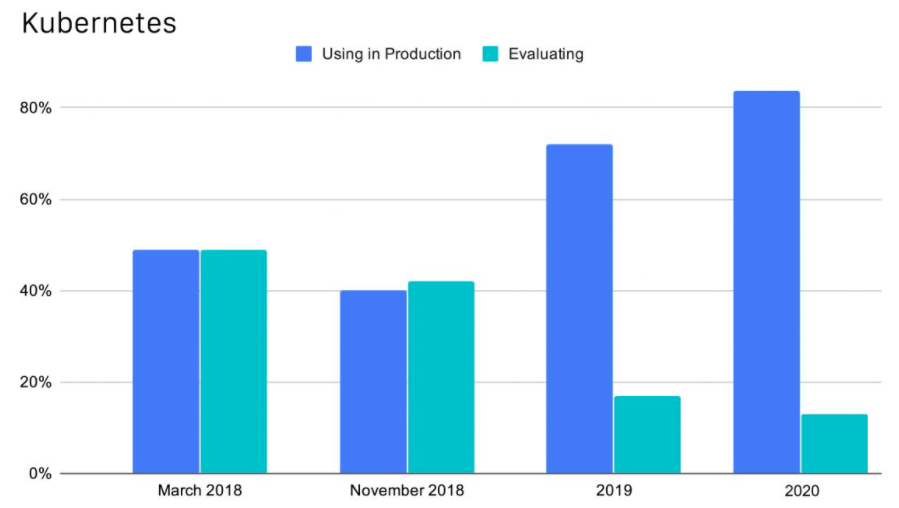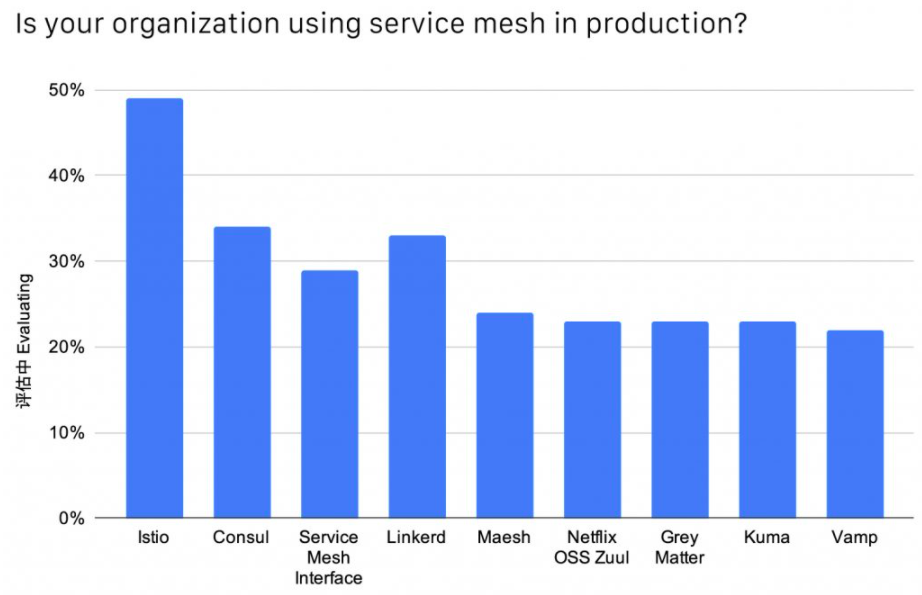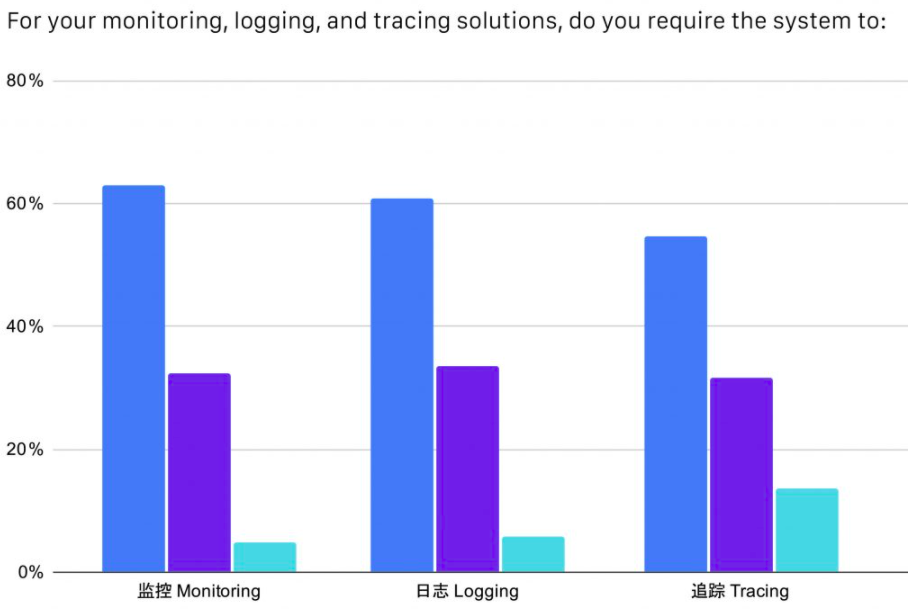On April 28, 2021, CNCF released the Cloud Native Survey China 2020. This is the fourth cloud-native survey conducted by CNCF in China. It aims to help related practitioners gain a better understanding of the process of cloud-native applications in China.
The author participated in the survey questionnaire in December 2020. The questionnaire content shows that the two reports of 2020 and 2019 are closely related. The 2020 report focuses on the change of the cloud-native application scale in China and the use and distribution of various open-source projects or products.
The questionnaire samples are highly representative. 439 people participated in the questionnaire for this report, and 49% are CNCF community members. 40% of enterprises involved have more than 5,000 employees, 19% have 100 to 499 employees, 12% have 1,000 to 4,999 employees, and 11% have 500 to 999 employees. Enterprises of other sizes are less than 10%. The software and technology industries are mainly involved, occupying more than 60% of the total. The telecommunication, financial service, and education industries occupy 5% to 10% of the total. The latter three industries have also made a lot of practices in cloud-native. The surveyed are mainly composed of software architects, backend engineers, and DevOps engineers, exceeding 90% (before deduplication.) These features seem to match with the enterprises implementing cloud-native around us.
Now, let's dig into some of the main conclusions related to Serverless in the report.
The first two percentages concerning container usage are very close to those from 2019, which were 49% and 32%, respectively. The value of Serverless has been recognized by most enterprises, and its programming mode is helping developers engage in the business in a brand new way. Let's use Alibaba as an example. Almost all businesses, including Taobao, Amap, Alipay, Xianyu, Fliggy, and B2B, are implementing Serverless technology in production scenarios and have developed open-source projects, such as Serverless Devs and Midway, simultaneously. The momentum of Serverless is as great as Microservices. Most believe there will be star open-source projects in this field (similar to Dubbo and Nacos) in the microservice field in the near future.
Hosted platforms remain the first choice for users to apply Serverless. All of the four hosted platforms are FaaS products. For example, Alibaba Cloud Function Compute (FC), the top hosted platform, is a fully-managed event-driven Serverless computing service that provides the function-level programming paradigm. Unlike the Serverless applications that respond to businesses through functions with a high architecture transformation cost, hosted platforms are cost-effective. Although 20% of the users selected installable software, more than 30% of them adopted Knative. Knative is not FaaS software but the best practice of CaaS. If Knative is excluded, very few users have built a function management platform using Kubeless or Open Whisk. It is worth noting that the Kubeless usage dropped from 29% in 2019 to 11% in 2020.
Alibaba Cloud FC was selected by 35% of the surveyed users and is still the most popular product in China.

The unique runtime capabilities and stability of Alibaba Cloud FC have something to do with Alibaba Cloud's construction on the performance and maturity of the underlying infrastructure, such as system software, computation, network, storage, and container. Besides, the selection of FaaS products depends on its capabilities and the integrity of the entire product ecosystem. The related trigger types and maturity, the on-cloud observability, and the compatibility with various standards in the open-source community all rely on the overall product capabilities of cloud vendors. Alibaba Cloud can provide rich products and overall product capabilities to lower the threshold for managing computing resources by using functions.
In October 2020, CAICT released the first cloud-native user survey report in China. The report stated, "Up to 66% of domestic Serverless users selected Alibaba Cloud." According to the Function-As-A-Service Platforms Q1 2021 released by Forrester in March 2021, Alibaba Cloud FC ranked first in the world and was the only service in China to enter the FaaS leader quadrant. All of this information reinforces the reasons for customers to select FaaS products.
The Cloud Native Survey China 2020 also draws conclusions on container, Service Mesh, and open-source tools.



On the whole, Container, Serverless, and Service Mesh represent cloud-native. Each one is experiencing rapid growth in terms of user groups or implementation scale. The communities are becoming increasingly prosperous as well. All of the related open-source tools are helping developers apply the three technologies to production more efficiently and stably. China has become the CNCF's third-largest contributor base (contributor and submitter) after the United States and Germany. Alibaba has six open-source projects that have entered the CNCF sandbox (14 in total in China), namely, Dragonfly, OpenKruise, OpenYurt, Vitess, ChaosBlade, and Fluid.
Function Compute Image Acceleration: A Leap from Minutes to Seconds
8 Key Trends in Serverless: A Detailed Analysis of Its Usage in the Real World
99 posts | 7 followers
FollowAlibaba Clouder - November 26, 2020
Alibaba Developer - September 6, 2021
Alibaba Clouder - November 23, 2020
Alibaba Developer - July 13, 2021
Alibaba Cloud Native Community - November 5, 2020
Alibaba Developer - February 9, 2021
99 posts | 7 followers
Follow Container Service for Kubernetes
Container Service for Kubernetes
Alibaba Cloud Container Service for Kubernetes is a fully managed cloud container management service that supports native Kubernetes and integrates with other Alibaba Cloud products.
Learn More ACK One
ACK One
Provides a control plane to allow users to manage Kubernetes clusters that run based on different infrastructure resources
Learn More Function Compute
Function Compute
Alibaba Cloud Function Compute is a fully-managed event-driven compute service. It allows you to focus on writing and uploading code without the need to manage infrastructure such as servers.
Learn More Microservices Engine (MSE)
Microservices Engine (MSE)
MSE provides a fully managed registration and configuration center, and gateway and microservices governance capabilities.
Learn MoreMore Posts by Alibaba Cloud Serverless